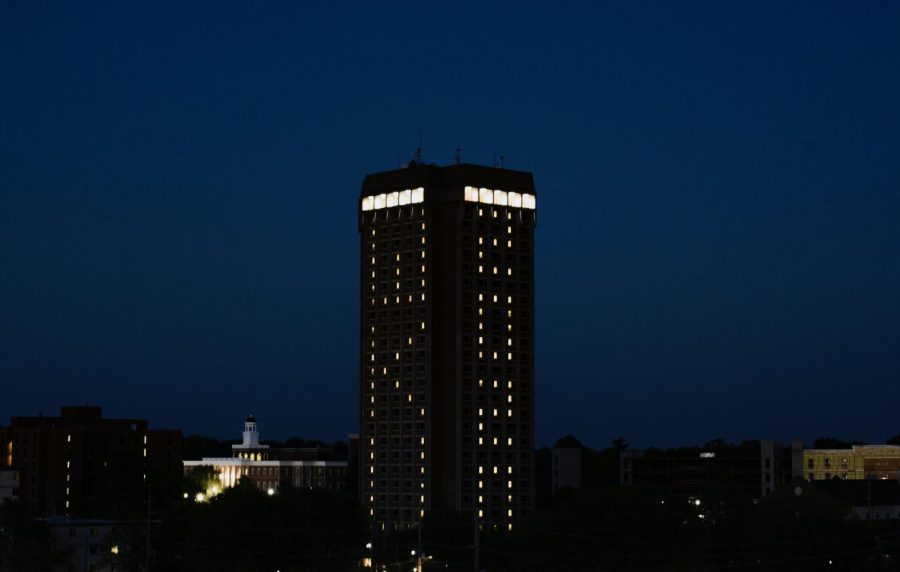WKU SAAA responds to We Are One Letter by WKU
July 13, 2020
The WKU Society of African American Alumni is asking campus leadership to uphold its actions from the We Are One Letter.
In a recent email to President Timothy Caboni, Director of Student Conduct Michael Crowe, Assistant Provost for Institutional Effectiveness Molly Kerby and Acting Provost and Vice President of Academic Affairs Cheryl Stevens and Executive Director of WKU Alumni Association Anothony McAdoo, WKU SAAA is offering a partnership with campus leadership to make sure they implement their statements.
Along with campus leadership, the group offered to partner with the newly created WKU Alumni Association Diversity and Inclusion Council. Michelle Jones, Associate Professor of Mathematics and member of WKU SAAA was nominated as an inaugural member and saw it as an opportunity to team up with more people.
“I think that there are many groups who have a committed interest in diversity, equity and inclusion that can be involved and hold our administration as the tenants of the statements,” said Jones. “The more groups involved the better. Since we are under the umbrella of the entire Alumni Association we didn’t feel the need to leave them out of the partnership.”
Anthony McAdoo says that in conjunction with SAAA, the WKU Alumni Association issued a joint release statement before they sent out an independent letter. In the news release, they addressed the opportunity they have to advance the message in the We Are One letter.
“Even though this is a campus-wide initiative, alumni can play an important role in various aspects in advancing those initiatives. Some of those directly, some of those indirectly,” said McAdoo.
Jones says that her time as a faculty member has shown her how WKU tends to handle these types of situations.
“I’ve been at WKU for 21 years as a faculty member and we are really good at talking the diversity talk, but we rarely in my experiences have walked the diversity walk,” said Jones.
When President Caboni released the statement, Jones noticed a lot of alumni, particularly African American alumni expressed their excitement that leadership had stepped up to the challenge, but many of those alumni were not on campus like she was.
“I am able to see things that are not in interest of diversity, equity and inclusion. I thought that it was a good time for the society to get involved and try to hold Dr. Caboni and upper leadership to be good tenants of the proposal because much needs to be done on our campus to level the playing field for our students and our faculty and our staff who serve those students,” said Jones.
She states that by partnering with campus leadership it will allow them to have a chance for input on certain matters. “Our hope is that it will allow us to have a voice at the table when these things are happening,” said Jones.
President of SAAA and Director of Postal, Printing, Vending and Passport Services, Marshall Gray, further explains that it is important to have a voice, due to the representation of African Americans.
“Not only holding them to it but to have some insight and input in the decisions that are made. We thought it was important that as a collective body that the society and who we represent that we have that seat,” said Gray.
Gray explains that the society was initially founded to give an opportunity to engage alumni and also offer mentorship to students. He believes that in the current racial climate they have an important role in providing guidance to students.
“This was an opportunity as an alumni to be able to come back and reach back to those students who are going through some of the same things that we were dealing with when we were in school and letting them know as an alumni that we’ve got the opportunity to share some of our experiences with the students and to also be there to help out and assist them,” said Gray.
Jones adds that her experience as a faculty member helps her know what students need. “I’m in the trenches with these students. I am a support system to a lot of our African American students. I know what their issues are. I hear the stories. I reach out to people and try to help them, but our voices alone are not enough,” said Jones.
She explains that all students need a better support system and equitable opportunities as others.
“Our students need to have access to resources, research opportunities, internships and all kinds of things that are available to the majority, our students should have an equitable chance in participating in them and benefiting from them to help further their success,” said Jones.
The Staff Senate recently met to discuss how they can improve the experience for minority students. Minority students have had help with the launch of the Intercultural Student Engagement Center, which has a 77 percent rate, according to a past Herald article.
A new initiative has been put into place by the newly formed Diversity, Equality and Inclusion Team as a part of the We Are One campaign. Students, faculty, staff and community can enroll in the academy which will include implicit bias training and learning about WKU’s history of racism and sexism.
Jones said that implicit bias training can be effective and that it’s important to learn about the history of racism, sexism, and all other -isms that are present in WKU’s history.
Jones said that WKU must go beyond implicit bias training. They must do whatever it takes to remove deeply ingrained institutional barriers.













